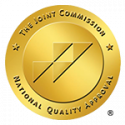Have you ever wanted to try and be sober for 30 days? Here is your chance to get help with that. Sobriety Solutions is excited to announce the #30DaySoberChallenge.
We encourage people trying to get and stay sober to go on social media and share your failures, successes, challenges, and triumphs with sobriety! Utilize the hashtags #30DaySoberChallenge and #SobrietySolutions so that you can share your story. Sharing your story will not only help change your life, but it will help improve the lives of many others! So let’s begin the #30DaySoberChallenge!
If you or a loved one are suffering from alcohol dependency, then we want you to STOP READING and call Sobriety Solutions at (833) 880-4357. This article can help, but there is no substitute for Alcohol Abuse treatment.
When most people think of sobriety, they think first of the physical act of avoiding drugs or alcohol. There’s a lot more to getting sober than abstinence from harmful substances, though.
Do you want to feel your best as you work toward sobriety? Do you want to stay on track with your goals long-term? If so, you also need to look beyond the physical and also focus on the emotional, mental, and spiritual components.
We’ve already broken down some of the ways you can stay physically sober for 30 days. Now, read on to learn more about how to stay sober for 30 days from an emotional standpoint.
What Is Emotional Sobriety?
Before we dive into the specific ways in which you can attain emotional sobriety, let’s get you up to speed on what we mean when we use this term.
The concept of emotional sobriety originated with the 12-step Alcoholics Anonymous (AA) program. The 12th step in AA asks participants to live the previous 11 steps and practice the principles of AA in everything that they do. Part of this includes emotional sobriety, which involves addressing all of the negative feelings and thoughts that a person has ignored or suppressed with the help of alcohol.
The goal of emotional sobriety is not to be happy or positive at all times. In fact, it’s quite the opposite. Ideally, you’ll have a healthy relationship with all of your emotions, even those that are painful or difficult for you to experience.
When you achieve emotional sobriety, you will have healthy coping mechanisms in place to work through those emotions. You’ll learn to soothe yourself and get a better perspective on negative experiences to make them more neutral. As a result, you will feel less compelled to turn to alcohol for help.
What Does Emotional Sobriety Look Like?
The idea of emotional sobriety might be just as scary, or more so than physical sobriety. You might be searching for information on the internet by googling things like “30 days sober what to expect” or “30 days sober benefits”. You may feel like this will help you feel more prepared or motivated to address this part of the equation.
If you’re unsure of what emotional sobriety will look like for you or whether it’ll be worth it, there are some important things to keep in mind.
First, emotional sobriety looks different for everyone. In general, though, people who are emotionally sober feel mentally and emotionally balanced. They’re able to face difficult emotions head-on and don’t try to run away from them.
Second, the benefits of emotional sobriety. When you achieve this, you get to avoid the symptoms of being a “dry drunk”.
This includes things like feeling resentful toward friends or family or being jealous of those who still consume drugs or alcohol. Instead, you feel satisfied with the path you’ve chosen and won’t let negative emotions consume you.
How Alcoholism Affects Your Emotions

Alcoholism wreaks havoc on your emotional health. Again, most people focus on the physical effects of alcohol, but it’s also damaging to our ability to manage emotions in healthy ways.
If a person already struggles with emotional instability or has a hard time processing negative feelings like sadness or anger, alcohol use can make these issues worse. There are many feelings that come up when one is regularly engaged in abusing alcohol including the following:
Guilt: Addicts often know that their behavior is hurting themselves and others, and they feel guilty for the harm they’re causing
Fear: Addicts may fear stigma, the potential loss of relationships, the potential loss of their health, and more
Helplessness: It often takes many tries for sobriety to stick; their inability to succeed the first time they attempt sobriety may cause addicts to feel helpless
Depression: Intense feelings of sadness and depression are common among addicts, especially due to the fact that drug abuse can alter brain chemistry and exacerbate already existing conditions (such as clinical depression)
Anger: Anger is common, too — anger at oneself, anger at others who confront them about their problems, anger about past situations that may have contributed to their drug abuse, etc.
Resignation: Some addicts may give up and feel resigned to a life of substance abuse, especially if they’ve tried to get sober before and haven’t been able to stick with it
When these feelings arise, it’s common for addicts to use their drug of choice to “numb” themselves and avoid having to confront potential problems head-on. This urge can persist even after you’re physically sober. As you start to pursue emotionally sobriety, though, you can learn to cope with these and other emotions without feeling an urge to turn to drugs or alcohol.
How to Stay Emotionally Sober for 30 Days
If you want to experience 30 days sober (and beyond) from an emotional standpoint, here are some practices that can help:

Practice Mindfulness
When you start pursuing 30 days clean, practicing mindfulness can be especially beneficial. Mindfulness can take the form of meditation, walking or spending time outdoors (without any distractions), mind-body practices like yoga, or simply noticing your thoughts as they arise.
This last example is often very helpful to those struggling with emotional sobriety. Noticing your thoughts, identifying the way you’re feeling, and accepting your feelings without judgment are all great steps that will help you on your journey.
The more you do this, the easier it’ll be to accept the way you feel without trying to change your emotional state with drugs or alcohol.

Write in a Journal
It’s common for those who are trying to figure out how to stay sober for a month (or longer) to take up writing in a journal, too. Journal writing can easily be coupled with mindfulness and provides you with a place to work through your thoughts and get them out of your head, so to speak.
When you write in a journal, it may be easier for you to identify patterns and figure out what situations trigger certain emotions. Then, you can start working on positive, productive ways to accept and cope with those emotions or see them in a different light.

Talk it Out
Talking to others about your feelings is very helpful, too. Attending a 12 step fellowship like NA or AA helps connect people together who share a common problem and collectively offer each other support and solutions. If you simply can’t stop drinking, we suggest you stop reading right now and call us so we can begin to guide you in the right direction. You can reach out to Sobriety Solutions by clicking here.
Addiction recovery support groups are safe places where you can talk about how you’re feeling without fear of judgment. You can also seek out a trusted friend or family member and ask them to listen as you work to evaluate and assess your emotions.

Seek Professional Support
Don’t be afraid to seek professional support from a counselor or therapist, either. Those who participate in inpatient programs have access to mental and emotional health support, as do many of those who are part of an outpatient program.
Even if you aren’t receiving formal drug and alcohol treatment, a professional can still help to give you strategies to address and process negative emotions. They can help you find an individualized approach and figure out the best techniques for you, personally.

Get Help and Work Toward Sobriety Today
You now know more about emotional sobriety and what it takes to stay emotionally sober for 30 days. Do you think you need some extra assistance to achieve your goals and take this next step in your sobriety journey?
If so, we’re here to help at Sobriety Solutions. Contact us today to learn more about our substance use disorder programs.










